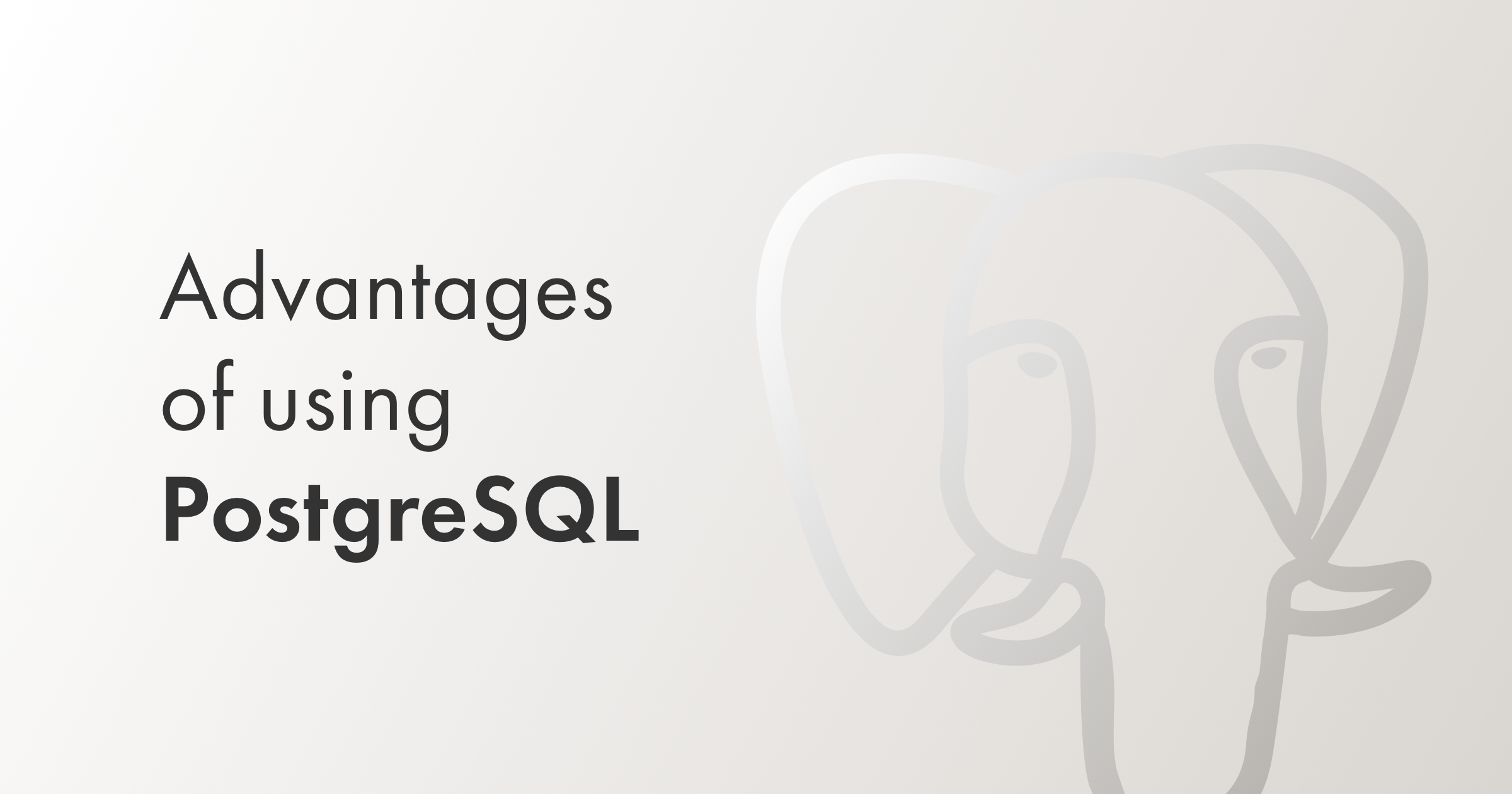Antwort What are the disadvantages of PostgreSQL? Weitere Antworten – What are the weaknesses of PostgreSQL
Give it a try, I bet you'll like it too.
- No horizontal scaling. One of the main limitations of PostgreSQL is its lack of support for horizontal scaling.
- Lack of NoSQL Features. Another limitation of PostgreSQL is its lack of support for some NoSQL features.
- Complex to manage.
- Not great for analytics workloads.
- Wrap up.
PostgreSQL Limits
- Each cluster is limited to 3 nodes.
- We only support PostgreSQL v12, v13, v14, v15, and v16.
- We only support selected PostgreSQL extensions.
- The number of available backend connections varies by plan size:
- To maintain cluster stability, users cannot access the superuser role.
PostgreSQL stands as a most advanced and professionally used open-source database management system that is highly regarded for its reliability, scalability, stability, and security. It is supported by a community of experienced developers who have put great effort into making it the leading-edge DBMS system it is.
Why is PostgreSQL so popular : PostgreSQL is chosen by companies because it offers data types that MySQL does not, as well as many other features that are not offered in MySQL. Generally, however, MySQL is typically recommended for web-based/online or mapping functions, whereas PostgreSQL is recommended for large analytical processes.
What are the pros and cons of PostgreSQL
| Advantages | Disadvantages |
|---|---|
| Highly extensible to add functions, data types, languages, and more | Slower performance compared to other RDBMS like SQL Server and MySQL |
| Support for unstructured data types (for example, audio, video, and images) | Stronger focus on compatibility, speed improvements require extra work |
What is the greatest weakness of Postgres : Below are the disadvantages/limitations of PostgreSQL: Postgres is not owned by one organization. So, it has had trouble getting its name out there despite being fully featured and comparable to other DBMS systems. Changes made for speed improvement requires more work than MySQL as PostgreSQL focuses on compatibility.
PostgreSQL has excellent analytical capabilities and offers a powerful SQL engine, so processing large amounts of data won't cause issues. PostgreSQL can also be extended easily.
The advantages and disadvantages of PostgreSQL at a glance
| Advantages | Disadvantages |
|---|---|
| Largely compliant with SQL standard | Comparatively low reading speed |
| Possible to process complex data types (e.g. geographical data) | |
| Flexible full text search | |
| Creation of own functions, triggers, data types, etc. possible |
What is better than Postgres
Read performance
It requires memory-intensive resources to scale for multiple users. On the other hand, MySQL uses a single process for multiple users. As a result, MySQL database outperforms PostgreSQL for applications that mainly read and display data to users.MySQL is easier to get started with. It has a wider tool set for non-technical users. PostgreSQL is more complex to get started with. It has a limited tool set for non-technical users.On the other hand, MySQL uses a single process for multiple users. As a result, MySQL database outperforms PostgreSQL for applications that mainly read and display data to users.
In general, NoSQL databases offer faster performance than SQL databases due to their simpler design. This is because they do not need to store information in a relational format and can therefore access data more quickly.
Why choose Postgres over MySQL : PostgreSQL is an object-relational database management system that offers more features than MySQL. It gives you more flexibility in data types, scalability, concurrency, and data integrity.
Why is Postgres slower than MySQL : PostgreSQL was built to be ACID-compliant from the ground up and it's optimal when concurrent transactions (MVCC) are required, but it is slower and less stable when it comes to read-only operations. MySQL is highly compatible with many different types of data storage engines.
What is faster than PostgreSQL
For reads, MongoDB Atlas is 50–100% faster than PostgreSQL and far faster than MySQL, confirming what I expected. It's also far cheaper per transaction, especially when you take into account that all I/O costs are included in Atlas versus additional and very significant IOPS costs for the cloud provider RDBMS.
If an operation involves different entities, MongoDB is usually faster because data is de-normalized and doesn't require costly joins between tables. On the other hand, Postgres is more capable of handling complex queries thanks to SQL and its sophisticated query optimizer.PostgreSQL is preferred for managing read-write operations, large datasets, and complex queries. But it's not preferred for read-only operations. MySQL offers fewer features than PostgreSQL, but this allows MySQL to stay lighter, more stable, and faster at processing—especially when it comes to read-only queries.
Do people still use PostgreSQL : PostgreSQL has become the most popular DB technology in 2022. For the first time, PostgreSQL (46.48%) topped MySQL (45.68%) in the popularity rankings for the professional developer community.




